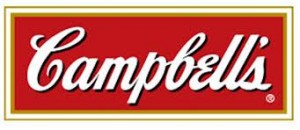 On both coasts of the U.S., Campbell Soup Co. had issues with weather. On the east coast, it was cold and winter weather, which normally spurs consumers to eat more soup they have at home in their cupboards and go out and buy more.
On both coasts of the U.S., Campbell Soup Co. had issues with weather. On the east coast, it was cold and winter weather, which normally spurs consumers to eat more soup they have at home in their cupboards and go out and buy more.
The company acknowledged it benefits from cold temperatures, but that could be offset from inclement weather. Plants were closed for a period said the company, with retail stores also closed and some lost business in the restaurant sector, said the CEO and president of Campbell’s Denise Morrison.
On the West Coast, the drought threatens to cause problems with agriculture. The California drought will have an impact on the company’s tomato crop, said the CFO of Campbell’s Craig Owens in a conference call. However, he said that would affect the future, since the company has its prices locked in now.
Total sales at Campbell’s were up 5.5% to over $2.28 billion for the quarter that ended on January 26. Soup sales in the U.S. were up 5%, including a gain of 21% on broth sales.
Morrison said the strong broth sales were partly due to more people cooking soup at home using its Swanson broth.
The company’s net profit was $325 million equivalent to $1.03 a share, which was up from last year at the same time of $190 million or the equivalent of 60 cents a share.
One analyst in a conference call asked the executives of Campbell’s to quantify what the impact was of the cuts in food stamps for Campbell’s.
Morrison said it was just one issue for consumers, which ended up affecting Campbell’s.
Consumer also are dealing with higher taxes for payroll, lower employment rates, the healthcare exchanges, and overall lower availability of discretionary spending for food, so food stamps are part of that scenario, said the CEO.
